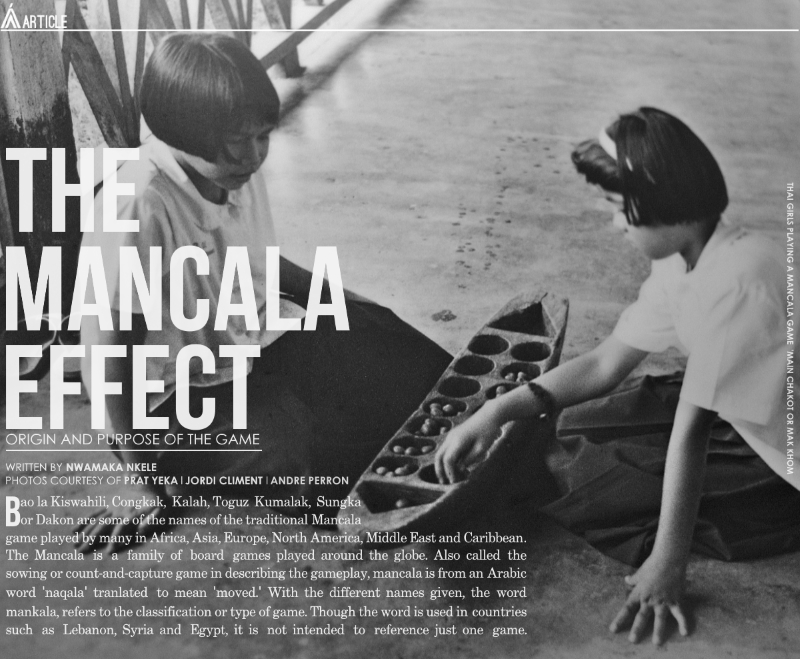
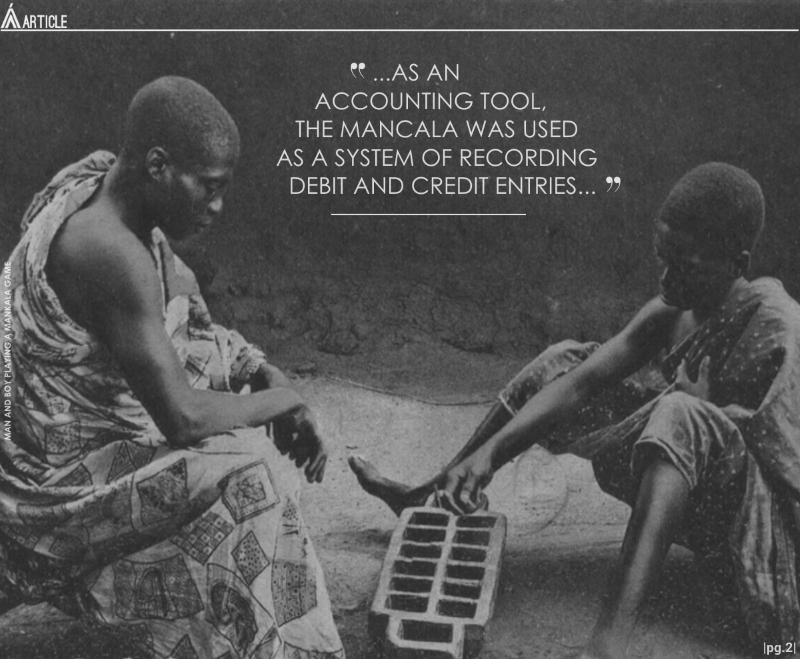
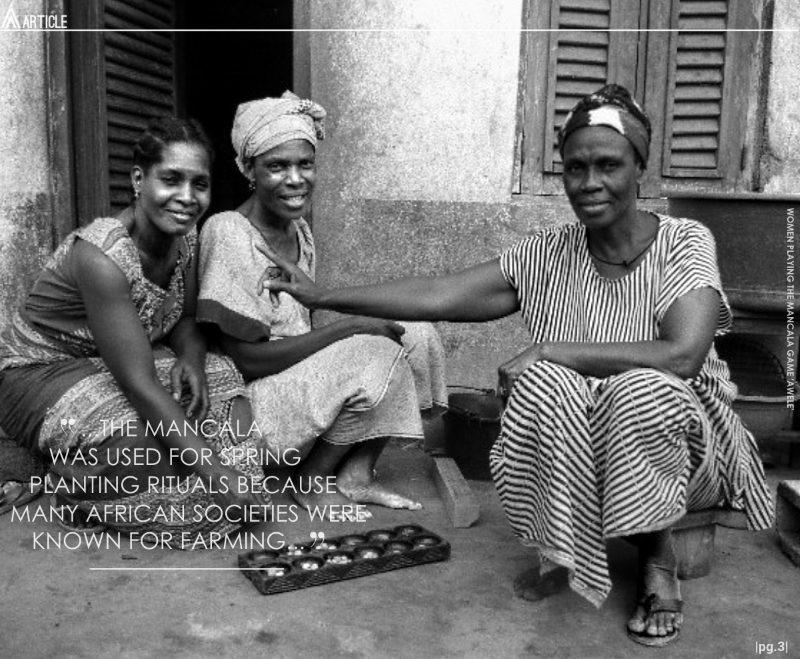





Mancala is an ancient family of board games. There are more than eighty mancala games but the most popular are the ‘Bao’ in East Africa, ‘Kalah’ in North America, ‘Oware’ in West Africa and the Caribbean, ‘Omweso’ in Uganda, and ‘Pallanguzhi’ in India and Sri Lanka. The history of mancala is a bit of a mystery, and though it possibly dates back to the beginnings of civilization, there is little verifiable evidence that the game is older than thirteen hundred years. There are different variations on exactly who were the first to play a game of Mancala. Some maintain the game was originated in Sudan thirty-six hundred years ago when men of the Kush civilization in the upper Nile River used the technique of holes and pebbles for accounting only. Others go back further with the belief that mancala originated with the same purpose of accounting five thousand years ago in Sumeria - an ancient part of Mesopotamia located in today’s southern Iraq. The Sumerians considered to be the first and oldest civilization in the world, are credited to be the inventors of mathematics. They knew about accumulating wealth, account for profits and losses for trading and tax collection. Historians maintain that Arab traders, Assyrians and Babylonians brought the game to Egypt and other parts of Africa. The first evidence of the game was in the discovery of a mancala board in Abu Sha'ar - a late Roman legionary fortress on the Red Sea coast, Egypt from the 4th century AD. Another evidence of the game was in the discovery of a pottery board and rock cut fragments in Uganda, Zimbabwe, Eritrea, Ethiopia and Ghana that are dated by archaeologists to be between the sixth and seventh century AD. The African Diaspora in the West Indies, parts of the Americas and Middle East took with them their cultural heritage in clothes, dance and mancala games with different names and rules as they were taken away from their birth lands.
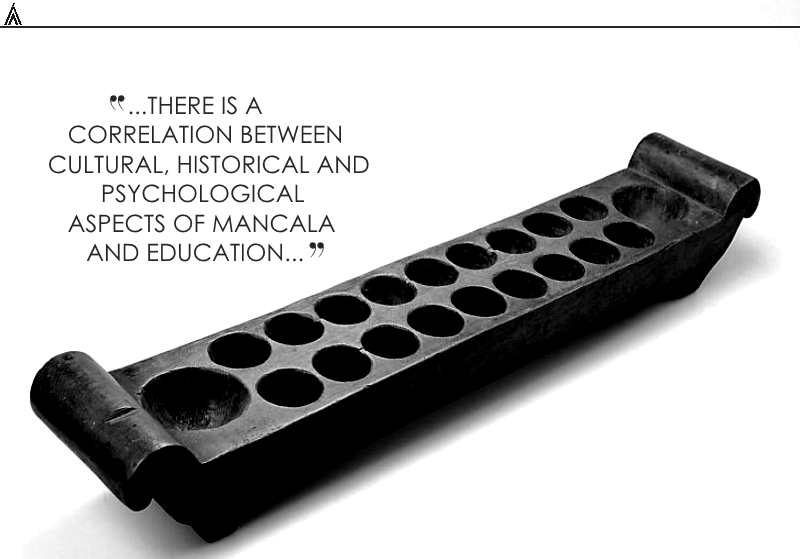
Spreading from Egypt to many parts of Africa and the Middle East, mancala made its way to India, Sri Lanka, Malaysia, Indonesia, Philippines and China, and when the control of the slave trade in Africa, fell under the domain of the Europeans, the game was taken from many cultures in West Africa and to the Caribbean, Gulf of Mexico and parts of the North American continent. In North America, at the beginning of the twentieth century in the south, a traditional mancala game called ‘Warra’ was played in Louisiana; and in support of this discovery, several mancala artifacts were found on former plantation sites. In the 1940s, a commercial version called the ‘Kalah’ became popular; however, despite the spread of the mancala, the unfamiliarity with the game in the West was high due to the bias and assumption that the games did not require any serious mental skill – remember the mancala was originally created as an accounting system and the 1961 Goren Hoyle Encyclopedia of Games further affirmed the complexity of mancala by describing it as “mathematical, akin to the game of drawing pebbles from a pile in an endeavor to win the last, but so complex as to remain a real contest.” In Europe, the mancala existed in pouches with a record of being played by English merchants as early as the seventeenth century in England. It did not gain much popularity in many of the areas, except in the Baltic area, where the German mancala called the ‘Bohnenspiel’ was very popular and in Bosnia, the ‘Ban-Ban’ was and is still played today. The mancala was discovered in Mandoli in India, Serbia, Cyclades in Greece, and in ‘Schloss Weikersheim’ - a secluded castle in southern Germany. In Cape Verde, the mancala known as ‘Ouril,’ was brought to the United States by Cape Verdean immigrants and is noted to be currently played in Cape Verdean communities in New England.
As an accounting tool, the mancala was used as a system of record keeping for debit and credit entries. One side showed money and goods received, and the other recorded sales or payments – a system as indicated to have been created by the Sumerians. An additional theory by historians is that mancala was originally created for recreational and ritual purposes such as funerals, weddings, divinations and ceremonies. According to authors, the mancala was used for a spring planting ritual because many African societies were known for farming and therefore an association was made between agriculture and the mancala. The holes created represented the fields and the laps of play by the people represented the seasons of planting and harvesting. In addition, game boards that were found in African temples and shrines suggest a different ritual that was associated with mancala. The game board is said to represent the world and is laid east to west, which is in alignment with the rising and setting of the sun. The seeds or stones are the stars and the holes are the months of the year. When the seeds are moved, it is said to represent the gods moving through time and space, while the mancala predicts the fate of the people.
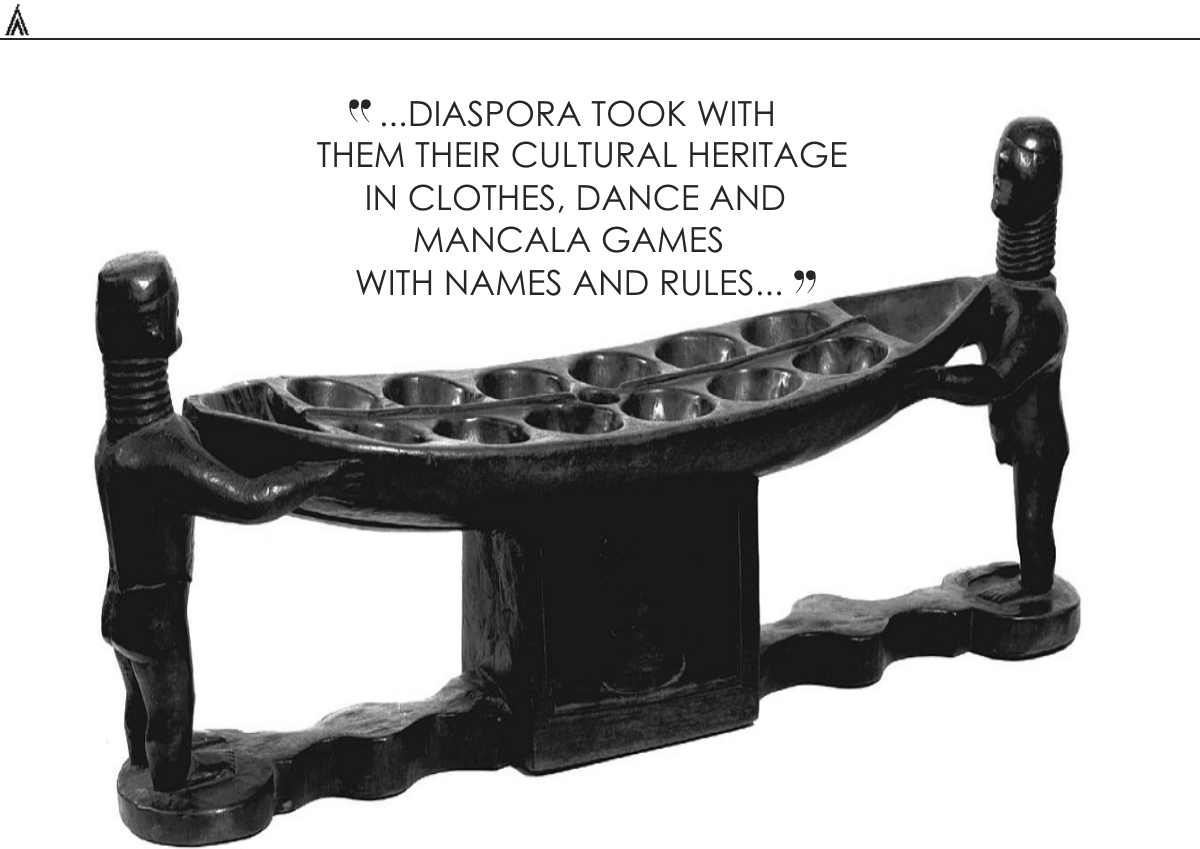
Like the chess game played as a recreational and competitive sport, the objective of a mancala game is to capture more stones than the opponent. In four-row games, one usually seeks to leave the opponent with no legal move or capture all counters in their front row. Due to the concentration and good strategy required to defeat the opponent, the games are noted to be instrumental in cognitive psychological thinking. In 1990, Retschitzki who conducted a research on players of the mancala game called the ‘Awélé’ in the Ivory Coast as part of his studies in developmental psychology; and researcher de Voogt who completed a study on expertise with tournament players of Bao in Tanzania, collaborated with Fernand Gobet to show the influence of board games in psychology. Results showed that there is a correlation between cultural, historical and psychological aspects of mancala and education. Furthermore, development studies suggest that mancala used to teach children and people with visual impairment helps in challenging the capabilities of children, students and even adults. Mancala has also been a topic in the issue of science. Along with other board games, they provide a defined domain for rules, biological, ecological and environmental validity. Though similar in some ways to chess, the mancala game feature various rule sets that allow for different degrees of difficulty and diverse cultural affinities that aids in a mutual respect and connection between people of different cultural and racial backgrounds.
Although there is the the rise and popularity of online gaming, which does include mancala games, people still come together in neighborhoods, homes or outdoors in various parts of the world, playing the mancala games amongst others on the street. In addition to being fun, mancala games help build fundamental skills, social interaction, physical hand-eye coordination and strategic thinking – a credit for an underdog that should not be ignored.